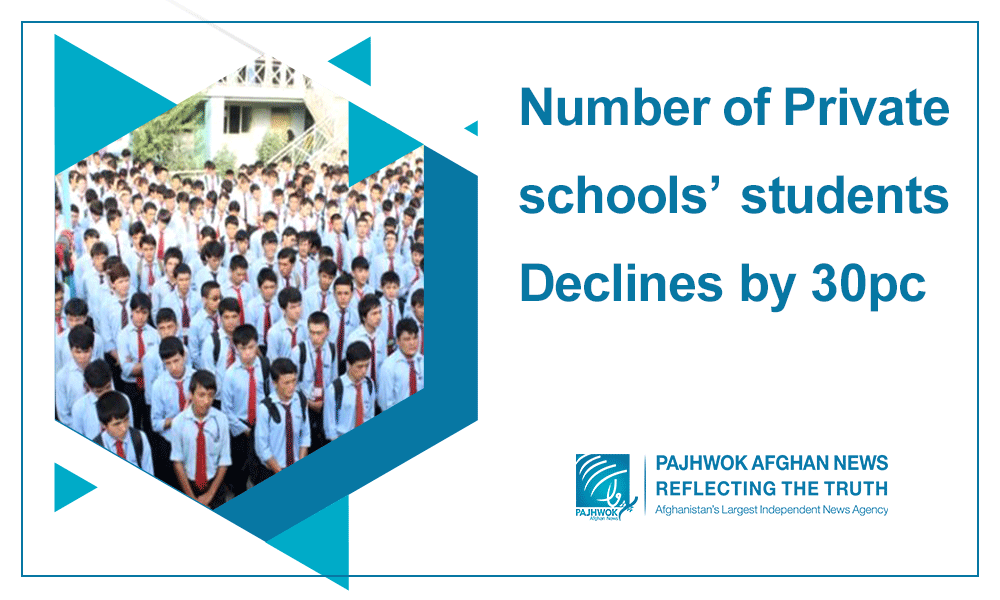KABUL (Pajhwok): The Afghanistan Private Schools Union (APSU) says the number of students has declined by 30 percent.
Around 200 private schools had been closed due to economic issues after last year’s regime change in the country.
Mohammad Azim Maidanwal, the APSU head, made the statement in an exclusive interview with Pajhwok Afghan News.
In addition to affecting other sectors, the recent political developments in the country had also influenced private schoolsm he argued.
The migration of Afghans to foreign countries and the poor economic situation forced parents to stop their children from going to private schools, he added.
Maidanwal reckoned there were around 3,000 private schools in the country, with 1,200 operating in Kabul, where 750,000 students were enrolled.
However, after last year’s political change, not only 200 private schools had been closed due to economic problems, but the number of their students had also fallen by 30 percent. The number of students decreased particularly after the girls’ schools were kept closed.
“Most private high schools had two branches, one for boys and the other for girls,” Maidanwal continued.
Private schools provided a sound education to tens of thousands of students, and created jobs for 150,000 people — directly and indirectly.
Maidanwal said that 70,000 to 80,000 teachers are employed in private schools, of which 50,000 of them are women.
He saddened that schools were once closed due to coronavirus quarantine and the second time due to political changes in the country.
He also complained about tax charges and said that the issue was shared both with the former government and current administration for solution, but they still persisted.
The government charge tax on private schools that bear a huge burden in the education sector, he said, adding that there is no tax charges on the private sector in the other world.
Maidanwal said that the expense of each student in government schools is $107 but private schools helped to exempt that charge for the government.
He added that the private sector pays more than $100 million in taxes to the government and warned that academic institutions will be closed down and the government will suffer hugely if the crisis in private sector not averted.
Islamuddin Yarmal, who owns a private school in Kabul, confirmed the number of students had dropped by 40 percent since the regime change in the country.
Although his school charges low monthly tuition fees, many parents/guardians find it hard paying even reasonable amounts due to their unstable economic situation.
He said there were 137 private schools in the 12th police district of Kabul, but 45 of them had been shut down.
He added that the government’s ban on girls attending schools beyond the sixth grade has also led to a drop in the number of students.
He called on the government to pay adequate attention to addressing private schools’ problems.
On the other hand, Ministry of Education spokesman Aziz Ahmad Ryan told Pajhwok the government was trying to find a solution to the problems of private schools.
He noted education officials always met the private schools; representatives and listened to their issues.
In response to a question, he said it depended on the orders of government leaders to reopen schools. He said all girls’ schools would be reopened once the government issued orders.
mds/mud








GET IN TOUCH
NEWSLETTER
SUGGEST A STORY
PAJHWOK MOBILE APP